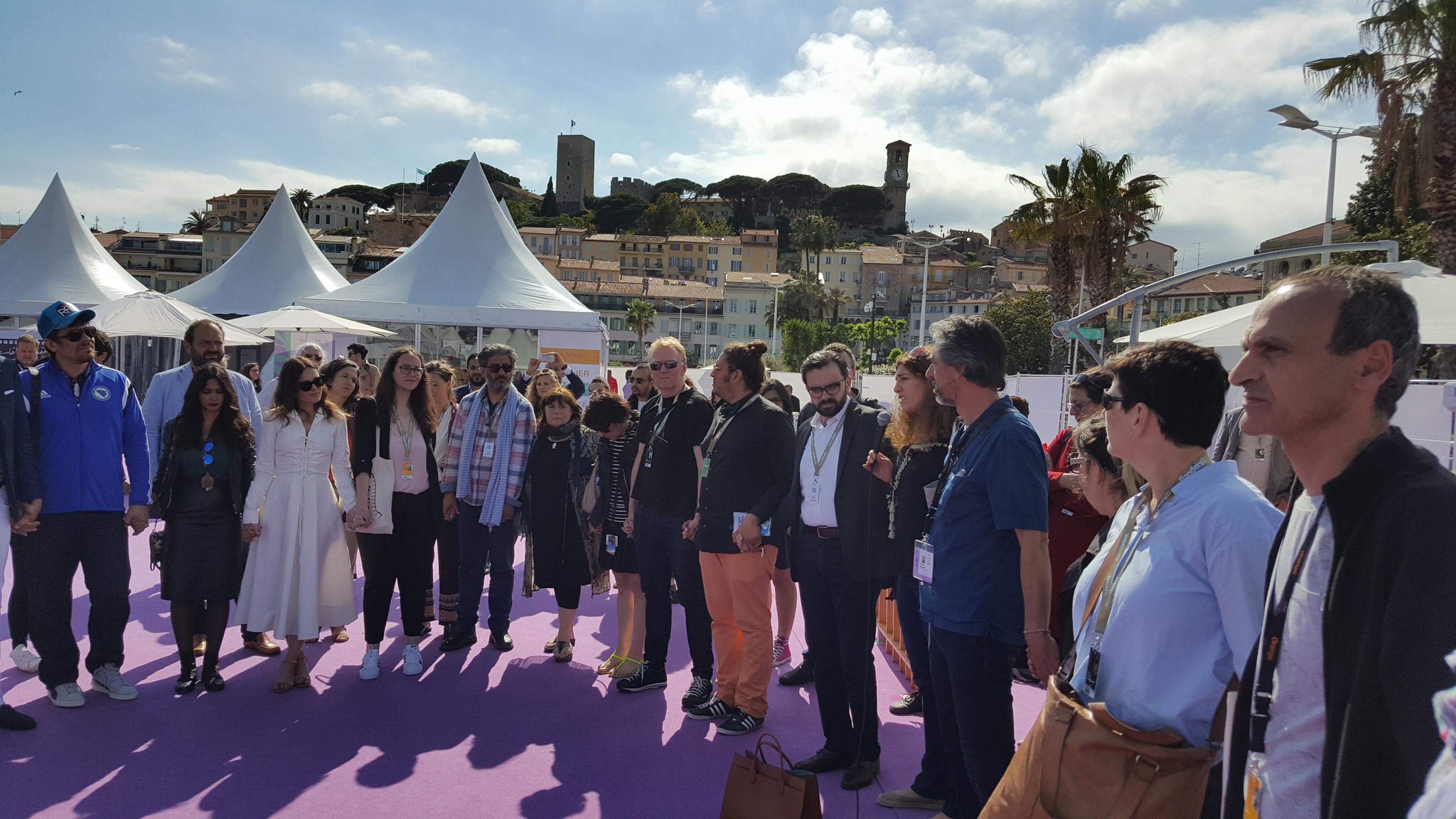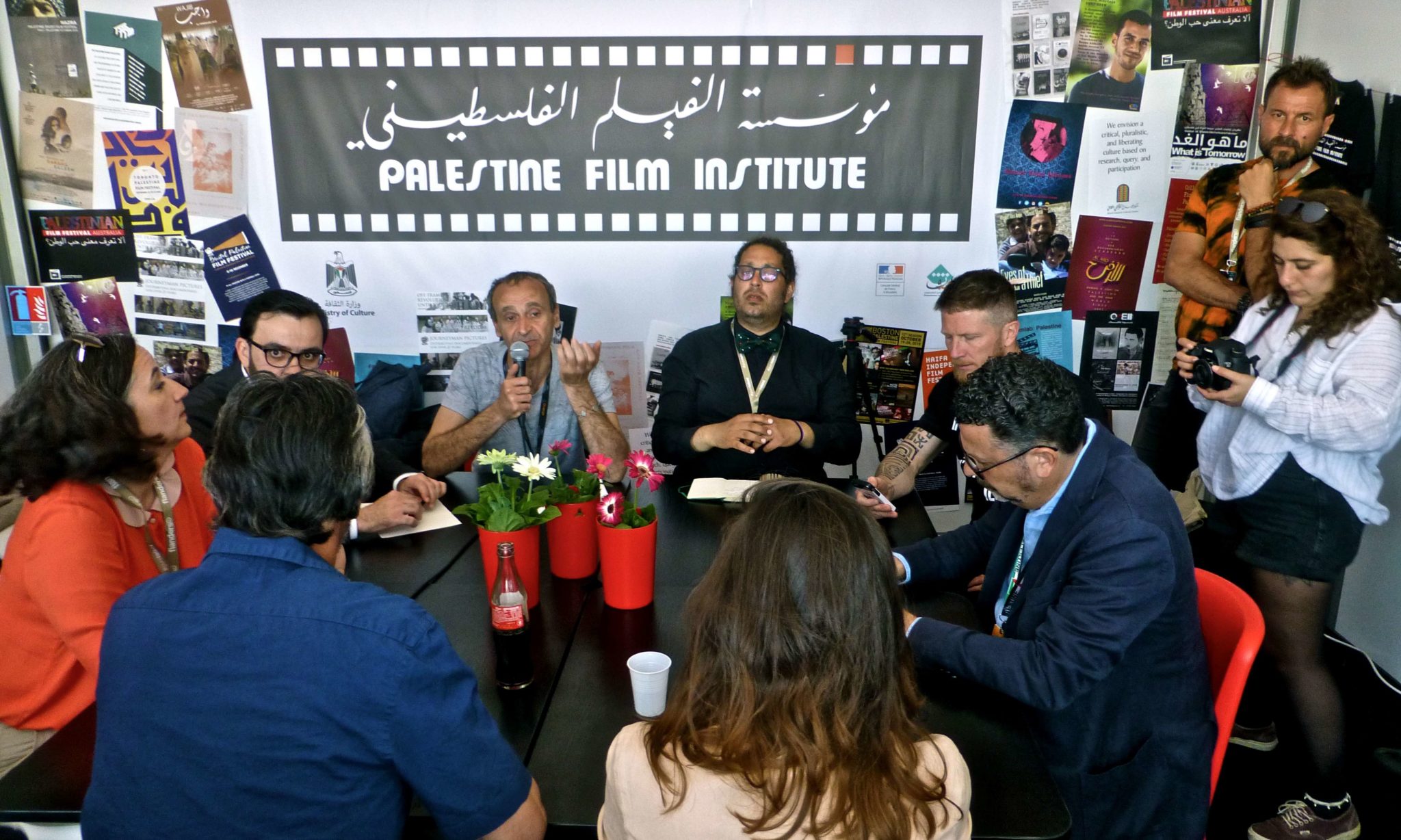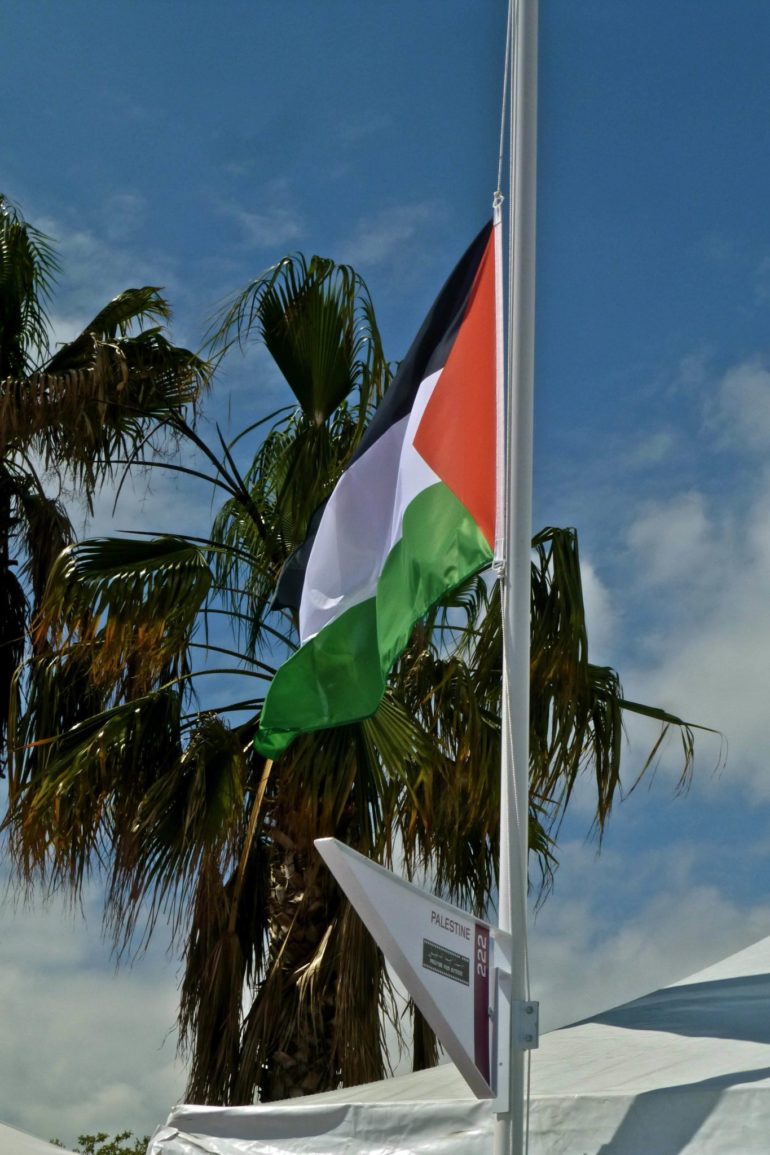A sunny May 15th in Cannes, the Palestinian flag flutters at half-mast in memory of those who perished in Gaza and to mark the 70th anniversary of Nakba Day, when the Israeli state was founded and Palestinians became stateless. Though individual Palestinians have attended before, with films and projects in selection and through the Market’s Producers Network, it was the first concerted attendance of Palestinian filmmakers under the mantle of The Palestine Film Institute. They came in search of friends and support for their objectives: The Palestine Film Institute is a structure that supports film productions from and for Palestine, through providing development and consultancy, increasing accessibility to funding, and connecting film talents and experts. The PFI is rooted in the tradition of political cinema and the history of independent film practice as a tool for social change.
Up on the hill from the ramparts of Le Suquet, the French flag flew as if in approval of the commemoration below as director Annemarie Jacir led a demonstration of solidarity at the Palestine Pavilion, along with fellow Un Certain Regard jury members Benicio Del Toro, Virginie Ledoyen, Julie Huntsinger, and Kantemir Balagov, and the entire Palestinian delegation, joined by Palestinian minister of Culture Dr. Ehab Bessaiso and actor Mohammad Bakri.

Then it was back to work, the Ministry of Culture announced that it’s delegating responsibility for building and managing the Palestinian film sector to PFI for the next three years. In the context of the inaugural Palestine Pavilion in the International Village Pontiero at the festival, an outline of the Institutes future tasks was discussed.
Despite being not-a-state, Palestine exists through culture and especially in film. Notable inclusions are Elia Suleiman’s wonderfully absurdist political satire Divine Intervention which took the Jury Prize in Cannes 2002. Hany-Abu Assad’s electrifying Paradise Now won the Foreign language Golden Globe in 2006 as well as an Oscar nomination and wowed audiences at the 2005 Galway Film Fleadh. In 2013 his informer story Omar took the special Jury Prize in Cannes Un Certain Regard section went on to be a Palestinian nomination for the foreign language Oscar. Of course most Palestinian filmmakers are diaspora, their art is both a way out and a way back, or as one member of the Pavilion told Scannain “this gives a richness and diversity of perspectives”. In the interest of that elusive Palestinian unity they also strive to keep internal politics outside of this promising new PFI umbrella.
This year, in Cannes the 2011 co-production treaty with France was discussed with a new incentive mechanisms in mind, a Canadian agreement is in the pipe-works, and other new arrivals in Cannes, the Saudis expressed admiration for the Palestinian endeavours.
Domestically, the Institute’s efforts will focus on the establishment of the Palestine Film Fund, to be complimented by new infrastructure for training the next generation of Palestinian film professionals, in order to promote an independent production scene with the capacity coproduce both Palestinian stories and projects of foreign origin. Finally, PFI will collaborate with the network of Palestine film festivals already in existence to establish a dynamic infrastructure for the distribution of Palestinian films internationally, and to initiate a plan for preserving the cinematic production of Palestine for years to come.
https://www.palestinefilminstitute.org


